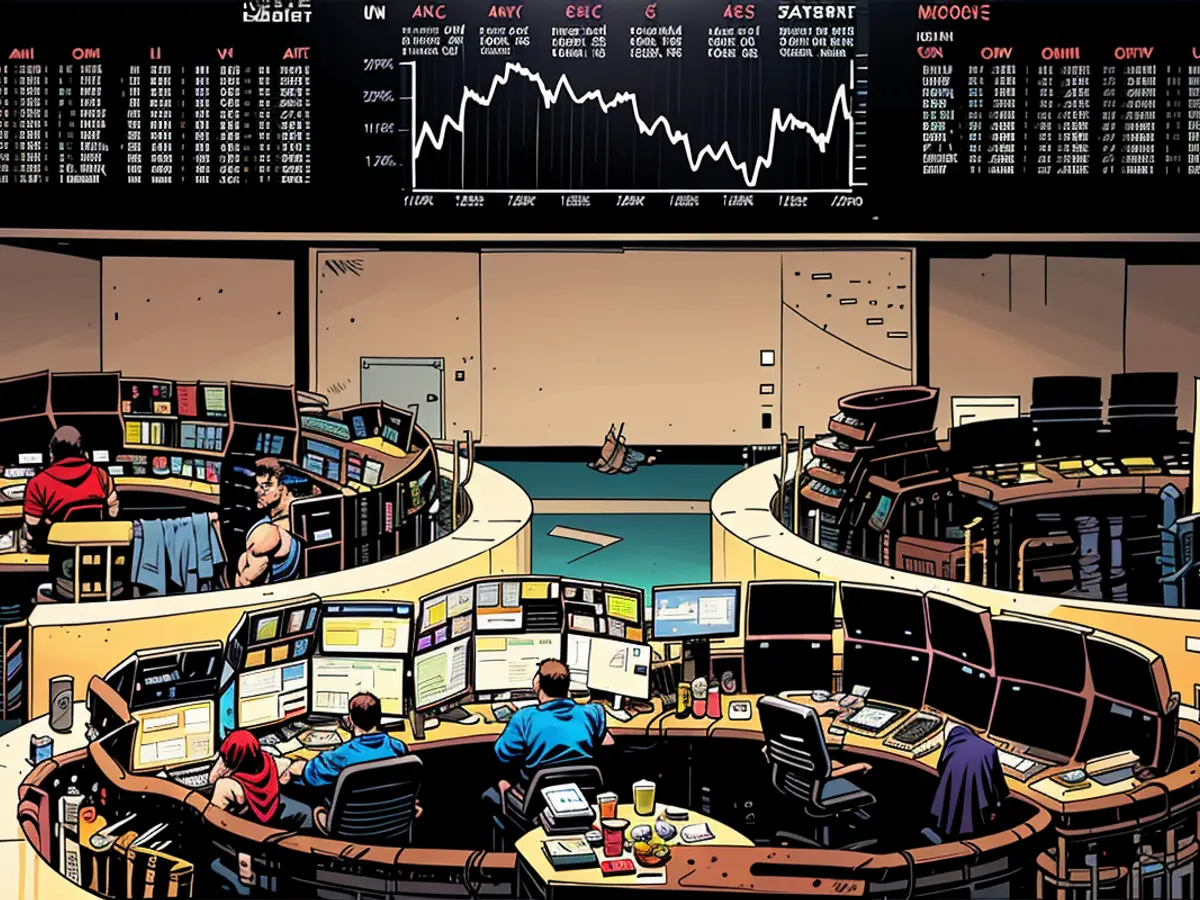Stock market traders on the lookout - no relief in sight
Was the stock market crash a one-off or will the correction continue? The stock markets are dominated by nervousness even in the new week. Above all, data from the USA is being scrutinized for signs of the state of the economy and inflation.
Even though the German stock market got off lightly during the crash at the beginning of the week, the situation on the stock exchanges remains tense, according to experts. This is especially true as the risks have not changed much. While highly valued US tech stocks have lost ground, it remains uncertain whether their correction is over. Concerns about the economy are also far from resolved, particularly in the USA. Although expectations of interest rate cuts have increased, it is uncertain whether this will be enough to put the markets on a growth trajectory.
Last week, the German benchmark index Dax ended with a gain of half a percent, after briefly falling to its lowest level in nearly six months due to renewed fears of a US recession.
Portfolio manager Jens Herdack of Weberbank expects continued volatility. This is especially true since August marks the beginning of a traditionally weak period for the stock market. The experts at HRK Lunis point to "thinly traded trading floors due to holidays," which could make negative impulses on the markets weigh more heavily than usual. "We are in the seasonally weakest time for stocks in the whole year," says Jochen Stanzl, chief market analyst at the online broker CMC Markets. "In the coming weeks, investors will be on uncertain terrain."
What's the state of the economy?
With the reporting season coming to an end, the focus is on upcoming economic data. "Investors will examine US economic data such as the Empire State Index, the Philadelphia Fed Index, and initial jobless claims for any recession signals," say economists at Helaba. However, market participants are likely to pay particular attention to US retail sales on Thursday. Private consumption is considered the main driver of the world's largest economy. Experts expect a 0.3 percent increase in July compared to the previous month.
Interest in inflation remains unchanged. As the inflation rate is still above the US central bank's target of two percent, this limits the room for interest rate cuts. The publication of producer and consumer prices for July on Tuesday and Wednesday, respectively, is therefore likely to receive increased attention. Experts predict an inflation rate of 2.9 percent year-on-year in July, which is slightly lower than the previous month. "Overall, the numbers would confirm that inflation is trending lower and this is likely to be sustained," explains Commerzbank economist Christoph Balz. "This would likely pave the way for the US central bank to cut interest rates in September."
Political tensions in the Middle East continue to weigh on the markets. Concerns remain about retaliatory strikes against Israel following the killing of two leading figures of Hamas and the Lebanese Hezbollah militia. "Lack of news from the Middle East is good news. Nevertheless, the risk of an Iranian attack on Israel continues to deter many investors from buying in at the seemingly cheaper prices," emphasizes investment strategist Jürgen Molnar.
Positive signals from German numbers are unlikely to be expected. The ZEW index for August, due out on Tuesday, is expected to merely confirm the subdued impression of other data. "After the Sentix index has noticeably fallen, this leading indicator is also likely to give way again," predict the economists at Helaba.
Regardless, the earnings season continues in full swing. Alone from the Dax, a half dozen companies will present their business figures. These include the two utilities RWE and Eon, as well as the consumer goods manufacturer Henkel. Overseas, companies such as the Swiss banking giant UBS and the US retailer Walmart will also open their books.
In summary, the business figures presented so far have been quite positive, says Ulrich Stephan, Chief Investment Strategist for Private and Corporate Clients at Deutsche Bank. The profits of European companies are on average 5.7 percent above market expectations. "Moreover, after a year of declining profits, companies are again reporting increases. In addition, about a third of companies have raised their profit forecasts."
The ongoing economic uncertainty has led to discussions about the potential for an Economic and Monetary Union in the Eurozone. This union could provide a more unified economic response to economic downturns, as seen in the stock market volatility and concerns about inflation.
In light of this, the upcoming US economic data, such as retail sales and inflation rates, will be closely watched, as they could impact the decision-making process for an Economic and Monetary Union.








